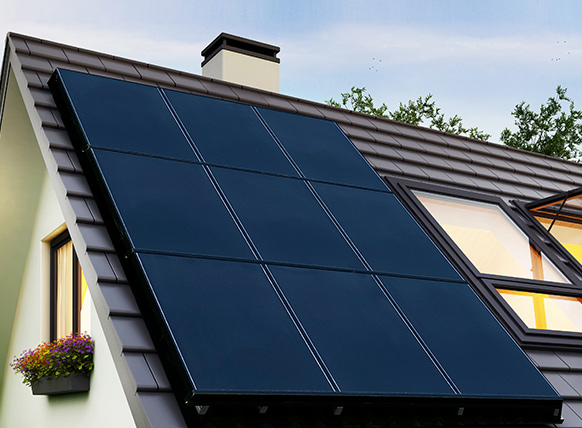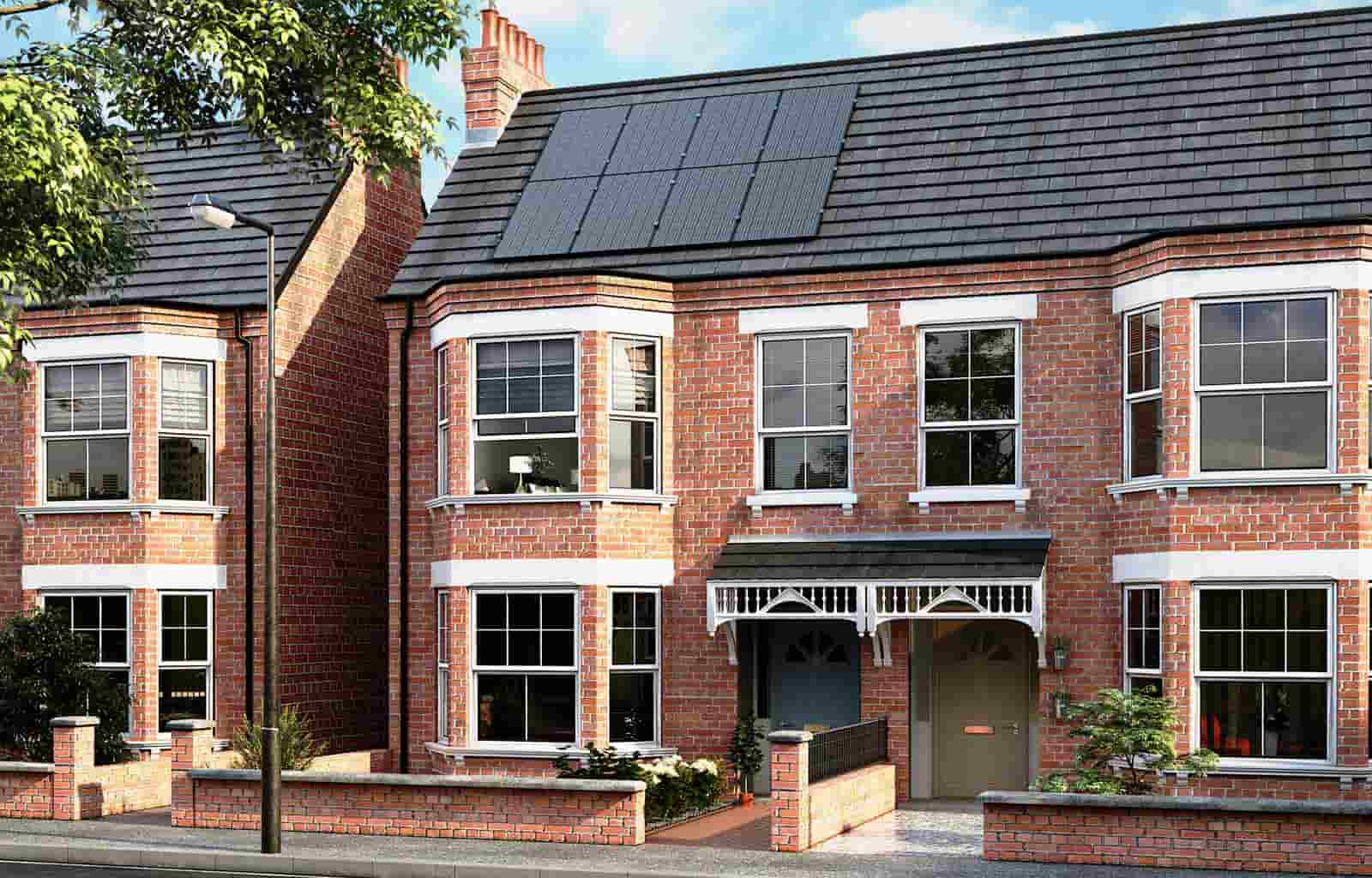

How do solar panels work?


What are solar panels?
Solar panels have been around for decades and are a familiar sight on roofs around the UK, powering your appliances, lights and electric car. In fact, solar energy is now the world’s fastest growing energy technology1.
You might know what solar panels look like, and what they do, but do you know how they work and how they can contribute to a cleaner future?
How do solar PV panels work?
Solar PV (short for photovoltaic) panels create renewable energy out of exposure to daylight. The panels themselves consist of smaller solar cells. These solar cells are then made up of several layers of semi-conductors.
When sunlight hits the solar cells, it creates an electric current between these layers called direct current energy. With the help of an inverter the direct current energy is then converted to usable alternating current which flows through your home’s electrical system and is distributed to your TV and other appliances.


What is solar battery storage?
The electricity produced by solar panels can be used in your own home as and when it's generated. And if your solar panels generate more energy than you can use, you can store any excess electricity in a solar battery storage ready for use when you need it. This means you’ll import less electricity from the grid which will save you money on your bills and you’ll use more of the electricity you generate than with solar panels alone.
Your home will only draw electricity from the grid if your solar panels aren’t generating or your battery doesn’t have enough electricity to meet your needs. And if you generate more electricity than you need, you can sell any excess energy back to the grid with our Smart Export Guarantee.
What are the benefits of solar panels?
If you’re considering solar panels for your home, this might be one of the main questions you have. There are many advantages to powering your home with solar panels and here are just a few of them:
- Low carbon: Generating electricity from solar panels doesn’t produce greenhouse gas so solar panels help to reduce your own personal carbon footprint as well as carbon emissions in the UK more generally.
- Help to save money: Solar panels coupled with a battery storage system could help you reduce your energy bills, in fact you could see savings of up to £1,362 a year2 on your electricity bills.
- Easy to maintain: Solar panels are designed to be self-cleaning so you shouldn’t need to clean them or pay for cleaning services. If you do need to clean them, you’ll probably be able to see what the problem is, like bird droppings or fallen leaves.
- Power your car: If you have an electric vehicle or a plug-in hybrid, you can use the electricity you generate with your solar PV panels to charge your car. That means less petrol or diesel going into the car and fewer harmful emissions coming out of the exhaust.
- Add value to your home: Our recent research3 reveals that almost nine in 10 prospective homebuyers now want properties with sustainable solutions (87%)4, like solar panels, over having a garden (80%). And solar panels can increase the value of homes across the country by £30,000 on average5.
Interested in learning more about the benefits of solar power? Check out our blogs on how you can benefit from solar energy and the advantages and disadvantages of solar.


Does it need to be sunny for solar panels to work?
The amount of electricity solar panels make isn’t reliant upon bright sunshine or high temperatures. Solar panels can convert light into electricity on the dullest days and in the coldest of weather as well as at the height of summer.
Solar panels need daylight rather than sunshine, meaning they can generate electricity even when its cloudy. Although solar panels are more efficient when exposed to direct sunlight, they still create an electric current which helps power homes on cloudy days – which is perfect for homes in the UK.
This means regardless of the weather you needn’t worry that your system isn't going to work.
Is my home suitable for solar panels?
Solar panels are suitable to be installed on most homes in the UK, but there are a couple of things to be aware of if you’re considering solar panels for your home.
Firstly, you’ll normally need to own your own home, and most importantly your roof, so if you live in a flat rather than a house, you’ll likely need additional permission from the building owner. If you do own your roof, think about the direction it faces. Solar panels work well on homes that have a south, east or west facing roof. But north facing roofs will not receive as much sunlight and so won't be as efficient. And the pitch of your roof should also be between 20o - 50o.
You’ll need planning permission to have solar panels installed if you live in a listed building, area of outstanding natural beauty, world heritage site or the installation does not meet standard guidelines
We can fit solar panels on roofs of all shapes and sizes and one of our solar experts will carry out a survey and guide you through the best options for you home.
Learn more about how we can help you harness the power of solar energy and find a solar system that's right for you.
1. BBC News: A breakthrough approaches for solar power.
2. These are example figures only. Savings are based on a south-facing property in central England with a 40-degree roof tilt and no shading, with electricity consumption of 4,900 kWh. Saving assumes fitting 14 x 325W panels and a 10.4 kWh battery and an electricity cost of 17.812p/kWh.
3. The research was conducted by Censuswide between 27.08.20 – 02.09.20 with 1,000 UK respondents who are prospective homebuyers in the next two years.
4. Any reference to ‘sustainable solutions’ calculated by combining results for solar panels and battery, home insulation, smart thermostats, intelligent heating/cooling, electric car charge point, double glazing, energy efficient boiler. Any reference to prospective homebuyers in this release refers to the sample of respondents surveyed.
5. Solar Power Portal: Residential solar boosts house prices by average of £30,000.
6. Price is based on an eight-panel “Energise package” (on-roof), concrete tiles (not slate), single elevation of scaffold with no complexities for example a conservatory, single-phase electrics, no trenching required for electrics.


Our blog
Read our latest blogs to discover how E.ON is leading the energy transition through smart and sustainable solutions.


Solar panels
Save money on your energy bills by generating your own power from the sun.


How can you benefit from solar energy?
Solar energy is the world’s fastest growing energy technology. To help you decide whether it’s right for you, read our blog about the benefits of solar energy.
